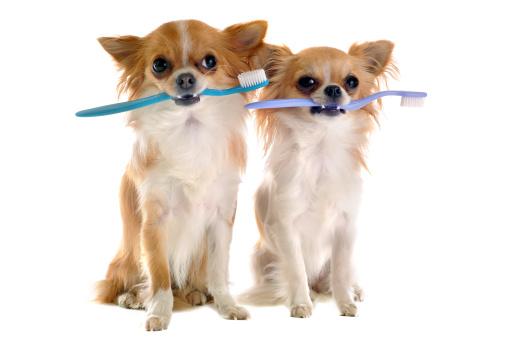
Veterinary Viewpoints: How to care for your pet's teeth
Thursday, January 29, 2015
Good dental health is just as important for pets as it is for the humans who care for them. Proper dental hygiene can help avoid serious health issues later on for pets.
Signs of oral and dental diseases pet owners can watch for include: bad breath, loose teeth, teeth that are discolored or covered in tartar, drooling or dropping food from the mouth, or bleeding from the mouth. Also, if a pet shies away when you touch the mouth area or exhibits a loss of appetite or loss of weight, it could be suffering from a dental health problem. A trip to the veterinarian is in order to help resolve any issues.
Here are some easy steps that dog and cat owners can take to care for their pets’ teeth.
- Start with a dental exam at your veterinarian’s office. Your veterinarian can prescribe treatment should your dog or cat have periodontal disease. Research shows that approximately 80% of dogs and 70% of cats show signs of periodontal disease by age 3 (Veterinary Pet Insurance).
- Brush your pet’s teeth daily with an approved veterinary toothpaste. Do not use human toothpaste as it contains fluoride which should not be swallowed by pets. Your veterinarian can demonstrate proper brushing techniques.
- Finally, schedule regular dental checkups for your pets. Cleaning their teeth regularly will help prevent tartar and plaque build up.
Dental disease in pets is a silent process that may lead to kidney, heart and blood infections. Not keeping teeth clean and gums healthy allows bad bacteria to build up and eventually cause health problems for pets.
Ensuring your pet has healthy teeth and gums can lead to a happier and hopefully longer life of your pet.
by Elisabeth J. Giedt, DVM
Veterinary Viewpoints is provided by the faculty of the OSU Veterinary Medical Hospital. Certified by the American Animal Hospital Association, the hospital is open to the public providing routine and specialized care for all species and 24-hour emergency care, 365 days a year.
